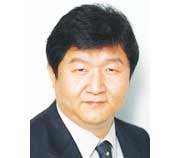Analyze this for Dec. 19 poll
As usual at this time of the year, the outbreak of the three-year Korean War is being remembered.
The war was started by a surprise attack by North Korea on the morning of June 25, 1950, and killed millions of civilians and soldiers.
Sixty two years later today, the Korean conflict remains unresolved, with millions of soldiers pointing guns at each other across the demilitarized zone (DMZ), a 4km-wide buffer that separates the two estranged brother countries from each other.
This year, there is an added sense of urgency attached to this old conflict that has outlived the Cold War in which its origins lie and defies all estimates about when it will finally end.
There are at least three reasons for this.
First, it is North Korea that strives to remain relevant in the Korean equation through all manner of provocations that it pursues.
It sneaks into the South and kills people as it did when one of its midget submarines torpedoed the frigate Cheonan in the West Sea or commits murder in broad daylight and claims responsibility as it did when it shelled one of the northern islands, Yeongpyeong.
It would be disgraceful for the Kim Jong-un regime to commit such heinous crimes and try to hold the international community hostage by conducting long-range missile and underground nuclear tests, when it can’t even feed its own population.
Then, again, this type of North Korean behavior is not entirely new.
Secondly, making the old war feel new is how the North Korean card is being played out in this critical political year with the presidential election slated in December.
President Lee Myung-bak commemorated the Korean War outbreak in Bogota, Colombia, talking to veterans who fought for the South in the Korean conflict.
Lee’s message was business as usual ― warning Pyongyang of harsh punishment if any provocations are made.
But it was noteworthy that he observed this special occasion while on an overseas trip.
In all likelihood, it was a scheduling coincidence but, still within presidential politics in which inadvertent acts often carry as much weight as intended ones, it was significant because it restored confidence in Lee as commander in chief.
This strikes a contrast to his “bungled” handling of the Cheonan attack and shelling of Yeongpyong.
But, at a different level, it is quite possible to interpret Lee’s Colombian act as part of a broader picture linked to domestic politics, more specifically the Dec. 19 presidential election.
National security never fails to serve as a touchstone for presidential candidates and their party bases.
This year, it is emerging again as a political narrative that captures the nation.
One big contributing factor is an ongoing ideological clash, which leftists and progressives call a “reenactment” of witch hunts last seen in the McCarthy era, while conservatives declare there are acts of “perversion by North Korean collaborators” in the National Assembly.
The subject of this dispute is the small but hardcore leftist Unified Progressive Party (UPP), some of whose outstanding members reject the current national anthem and deny that the North started the Korean War.
The UPP was a junior partner of an election alliance with the main opposition Democratic United Party (DUP).
Right now, the leftist party is gripped by a power struggle between moderates and radicals over an internal vote rigging scandal, which is being played up by the media. The DUP appears to be of two minds ― coveting the UPP’s support base at little cost to its existing support base and undecided voters.
In this context, the DUP’s leading presidential candidate, Moon Jae-in, former chief of staff to the previous President and his political friend, the late President Roh Moo-hyun, appeared in public with his full Special Forces regalia complete with a black beret. Moon was a former black beret.
The important question is whether or not the North Korean factor will drag on until December and how this will affect the candidates.
Six months can be an eon in election terms.
Although Rep. Park Geun-hye has been leading in the popularity polls for some time, by many indications, she has to fight and win in December.
The biggest factor is Ahn Cheol-soo, who was neck and neck with Park in the latest survey, although he has not declared himself as a candidate.
By ideological criteria, Park is a conservative with her father being the authoritarian Park Chung-hee who ruled the South for 16 years, using the North’s threat as an excuse for his ironfisted control.
Even considering her history as well as tightly stage-managed public behavior, Park indicates that she can be more flexible than President Lee about the North.
This could be a plus to her because, if she wants to win, she would need all the help she can muster, especially from those who remain undecided. Park was born in 1952, and belongs to a generation that received a stringent anti-communist education.
By comparison, Ahn, a doctor-turned computer engineer, has not yet displayed his true ideological colors. Considering his associates, he will probably emerge as a progressive but it’s not yet clear.
So it appears that we may have to wait a bit longer for Ahn to present his ideology more clearly before making up our mind up about whether he is worthy of becoming our leader or not. That is, if he declares that he will run for the presidency. <The Korea Times/Oh Young-jin Managing Editor>

